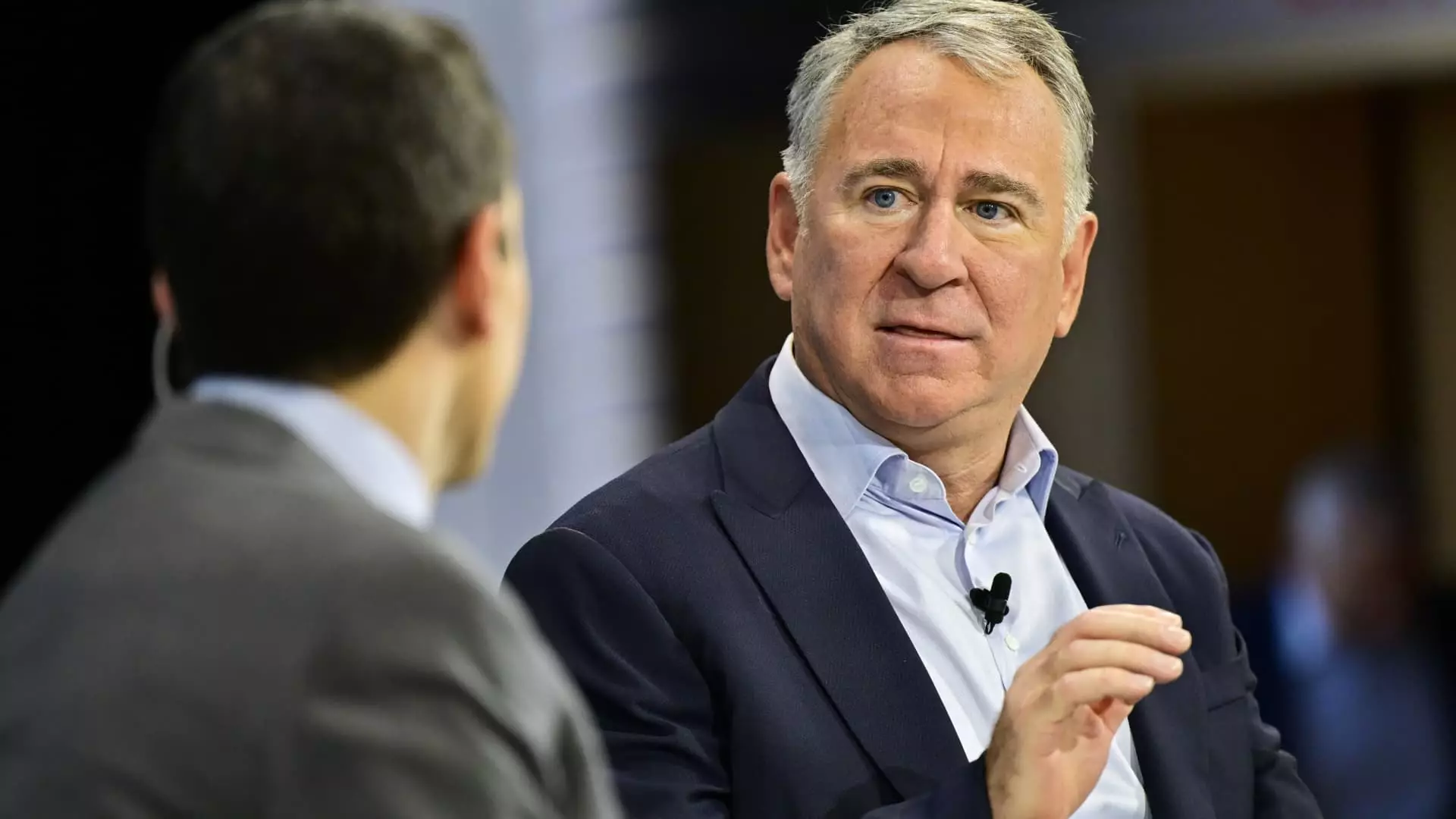In January, a month typically associated with uncertainty, billionaire Ken Griffin’s hedge fund, Citadel, managed to achieve a modest yet commendable gain. Reports indicate that the Wellington fund, which is Citadel’s flagship multistrategy entity, demonstrated a 1.4% increase during this period. This follows an impressive 15.1% surge recorded in 2024, reflecting Griffin’s strategic prowess in navigating complex market dynamics. The fund benefited from diverse strategies, with commodities, equities, fixed income, credit, and quantitative focuses all contributing positively to the overall performance during the month.
The results point to a well-diversified portfolio that can leverage various sectors, thereby minimizing risks associated with market volatility. The firm’s tactical trading fund rose 2.7%, mirroring the performance of its equities fund, which employs a long/short strategy. Interestingly, Citadel’s global fixed income fund also reported a solid return of 1.9%. Such consistency across multiple strategies speaks volumes about the firm’s ability to adapt and thrive even when the market landscape becomes tumultuous.
Simultaneously, the markets felt the ripple effects of political uncertainties as investors grappled with potential fallout from the protectionist policies proposed by President Trump. Political climates can dramatically sway investor confidence, and January was evidence of the heightened sensitivity to such factors. Significant price fluctuations were noted, particularly following the emergence of DeepSeek, a new AI competitor from China, which precipitated a sell-off of major technological stocks, including Nvidia. This showcases how rapidly news can alter market trajectories and investor behaviors.
Despite these intrusions in market stability, the S&P 500 managed to climb by 2.7% in January, reflecting resilience and overall investor optimism. The benchmark also reported a remarkable two-year growth of 53%, underscoring its robust performance in the past couple of years. Such dramatic gains may mitigate some fears about impending market corrections, although historical comparisons to the late 90s serve as a cautionary tale about market exuberance.
As the political narrative continued to unfold, Ken Griffin expressed apprehension regarding the tariffs proposed by Trump, stressing the potential long-term harm these measures could inflict on the broader economy and corporate competitiveness. Griffin’s perspective highlights a crucial aspect of investment strategy: the balance between immediate gains and sustainable growth. While tariffs might provide a short-lived advantage to domestic firms by weakening competition, such practices often lead to detrimental outcomes in productivity and innovation over time.
This concern underscores a larger dilemma faced by investors and corporations alike. In a world where geopolitical decision-making intertwines intricately with the financial markets, investors must remain vigilant and adaptable. Griffin’s insights serve not only as a critique of potential policy shifts but as a reminder that the interconnectedness of global markets requires foresight and an acute understanding of both immediate and lasting impacts on economic health.
Ken Griffin’s Citadel managed to find its footing in a volatile environment marked by political upheaval and market fluctuations. Through diversification and strategic adaptability, the firm continues to navigate the complex tapestry of global finance, reflecting the enduring truth that in investing, flexibility and insight are invaluable.

